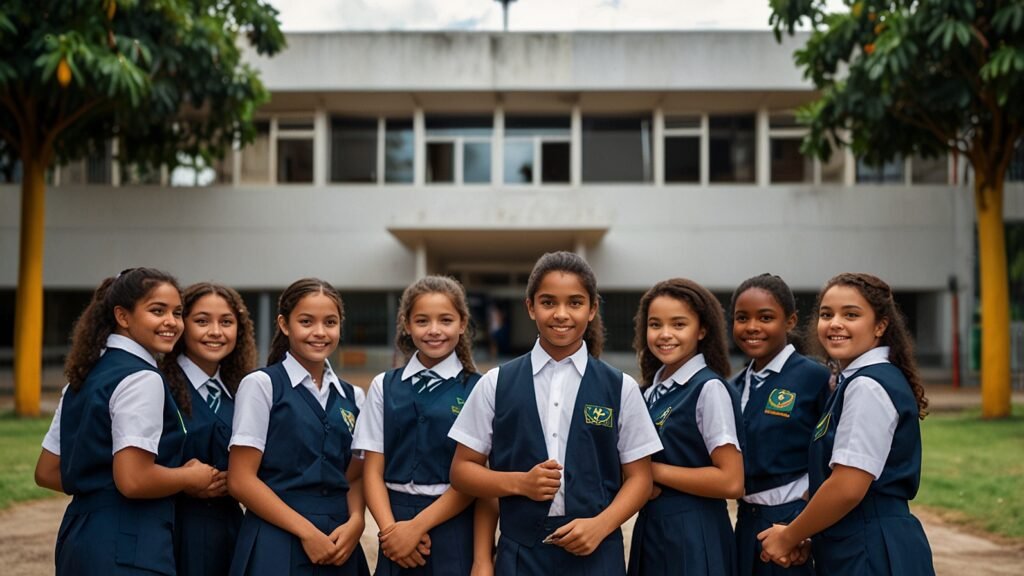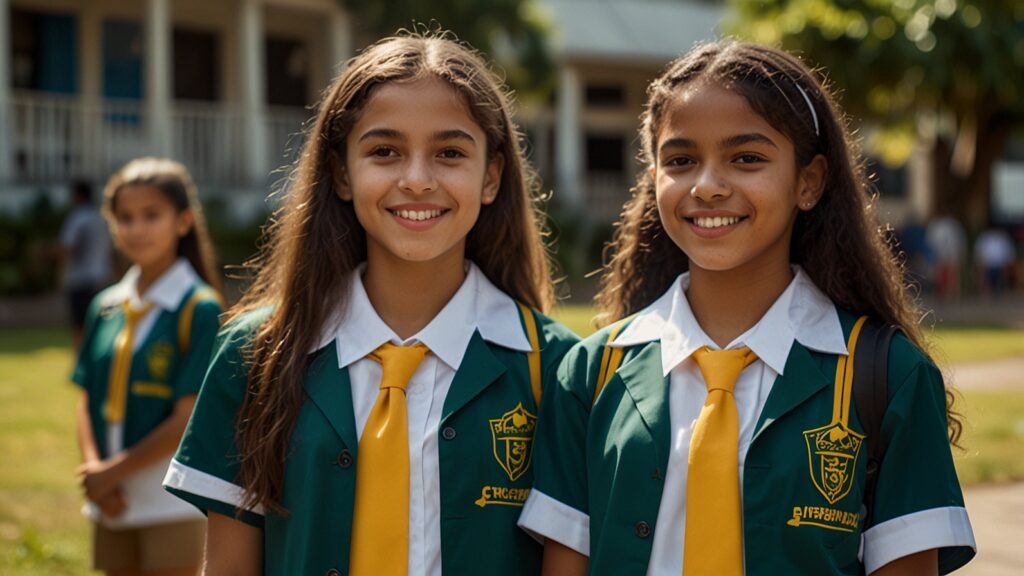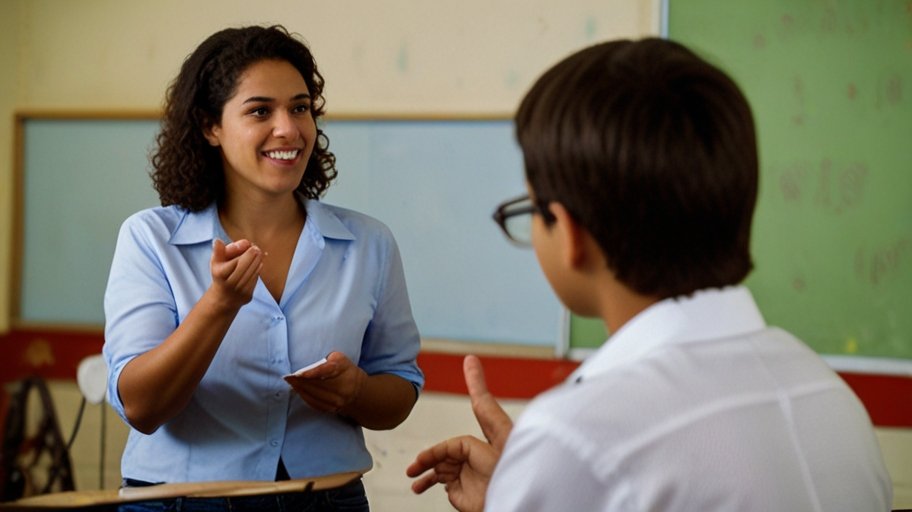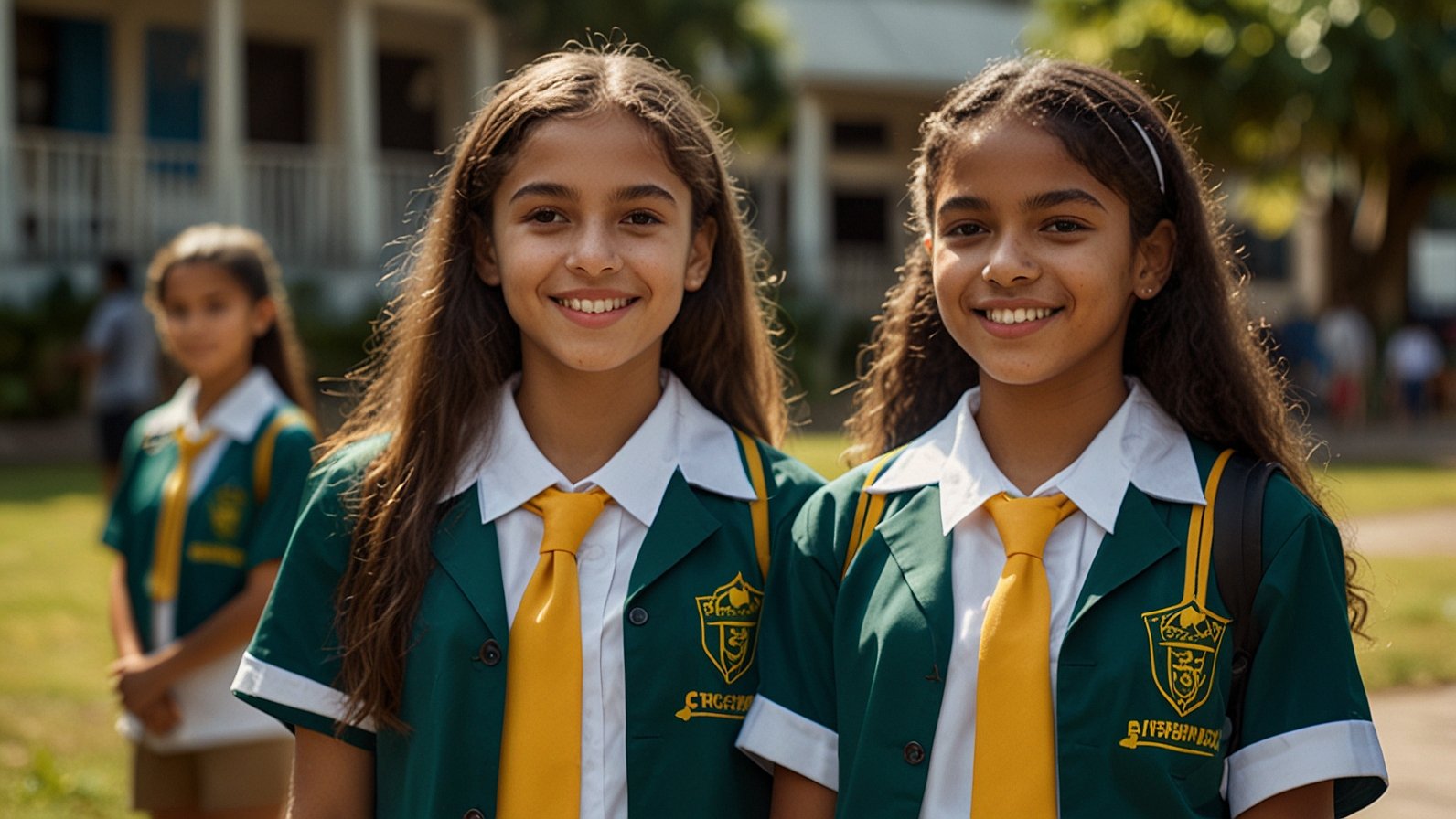Reforming Brazil Educational System : Success and Struggles

The Brazilian tutoring framework has gone through various changes and improvements all through the long haul, proposing to give permission to quality preparation to all of its occupants.
No matter what these undertakings, the structure really faces a couple of moves that ought to be addressed to ensure fair and far reaching preparing for
Irrefutable Groundwork in Brazil

Preparing in Brazil has a long and moved history, following as far as possible back to the commonplace time period when the Portuguese spread out the grade schools.
During this time, guidance was essentially severe, obliged by the Catholic Church, and accessible generally to the top notch.
The Jesuits, who made an appearance in Brazil in the sixteenth 100 years, expected a basic part in shaping the early educational system.
They spread out schools to show the offspring of the Portuguese explorers and convert local people to Christianity.
Regardless, the accentuation was more on severe direction than on giving a sweeping based tutoring.
In the eighteenth 100 years, the Portuguese crown expelled the Jesuits, provoking a diminishing in enlightening entryways.
It was shortly after the nineteenth 100 years, with Brazil’s independence from Portugal in 1822, that the country began to cultivate its own educational system.
The fundamental government supported schools were spread out during this period, but they remained intriguing, and permission to preparing was confined to the rich.
The 20th century saw enormous changes in Brazil’s tutoring framework.
The Constitution of 1934 meant while preparing first was seen as an ideal as far as Brazilians, with the public power dealing with giving free and compulsory fundamental guidance.
Regardless, it wasn’t long after the mid-20th century that more massive changes began to happen as expected.
The 1961 Public Tutoring Guideline (Lei de Diretrizes e Bases da Educação Nacional) intended to modernize the tutoring framework, but the strategic one party rule that took power in 1964 delayed further progression.
With the re-appearance of a greater part manages government during the 1980s, Brazil’s educational system began to go through basic changes.
The 1988 Constitution guaranteed the right to guidance and spread out tutoring as a commitment of the state.
This period in like manner saw the decentralization of the educational system, with more noticeable commitment given to states and districts.
Plan of the Tutoring Framework

#### Plan of the Tutoring Framework
Brazil’s tutoring framework is isolated into a couple of levels: youth guidance, fundamental preparation (which consolidates fundamental and lower discretionary guidance), upper discretionary tutoring, and high level training.
The structure is coordinated by the Assistance of Preparing (MEC), yet state and common governing bodies furthermore expect basic parts in the association and funding of schools.
Youth Education in Brazil
Youth Education
Youth preparing in Brazil is parceled into two stages: day care (creche) for youngsters developed 0-3 years and pre-school (pré-escola) for adolescents developed 4-5 years.
This period of guidance isn’t required, yet it is logically seen as central for youngsters’ psychological and social new development.
The public authority has advanced endeavors to develop induction to youth guidance, particularly for youngsters from low-pay families.
Notwithstanding these undertakings, induction to quality youth preparing stays unbalanced, with colossal contrasts among metropolitan and provincial areas.
In metropolitan networks, particularly in more extravagant districts, there are the more well-resourced and extraordinary pre-schools.
In any case, in rural districts and less lucky metropolitan regions, the openness and nature of youth tutoring are regularly lacking.
This uniqueness can influence adolescents’ enlightening outcomes, as youth tutoring is essential in laying out the preparation for future learning.
Central Education
Fundamental tutoring (educação básica) in Brazil is vital and contains three stages: fundamental preparation (ensino urgent I), lower discretionary preparation (ensino essential II), and upper helper preparing (ensino médio).
The age range for central preparation is from 6 to 14 years for fundamental and lower discretionary guidance, and 15 to 17 years for upper assistant tutoring.
Fundamental Tutoring (Ensino Essential I)
Fundamental tutoring is the chief period of obligatory preparation in Brazil, covering grades 1 to 5.
The instructive program consolidates subjects like Portuguese, number juggling, science, history, geology, articulations, and real tutoring.
The accentuation is on making essential instruction and numeracy capacities, as well as basic data across an extent of subjects.
Brazil has made basic progress in developing permission to fundamental preparation, with close boundless enrollment rates. Regardless, challenges stay in ensuring that all students get quality preparation.
Teacher lacks, insufficient structure, and a shortfall of educational resources are a part of the issues that impact the idea of fundamental tutoring, particularly in troubled districts.
Lower Discretionary Preparation (Ensino Head II)
Lower discretionary preparation, covering grades 6 to 9, develops the foundation laid in fundamental tutoring.
The instructive arrangement is more unambiguous, with a more vital focus on subjects like math, science, and Portuguese.
Students are similarly familiar with obscure vernaculars, typically English or Spanish.
While selection rates for lower assistant guidance are similarly high, dropout rates start to increase at this stage, particularly among students from low-pay families.
Various students give school to work and support their families, especially in country locales where money related open entryways are confined.
This issue includes the prerequisite for assigned interventions to ensure students remain enlisted and ensure they complete their fundamental preparation.
Upper Helper Preparing (Ensino Médio)
Upper helper tutoring, which covers grades 10 to 12, is the last period of fundamental preparation in Brazil.
It is expected to prepare students either for high level training or for the work market.
The instructive program consolidates focus subjects like Portuguese, math, and science, as well as elective subjects that license students to address extensive expert in areas of interest.
Recently, the Brazilian government has familiar changes with upper assistant guidance to make it more versatile and open to the necessities of students.
The new Open Ordinary Curricular Base (BNCC), executed in 2020, grants students to pick a “getting ready timetable” considering their tendencies and calling targets.
These timetables can focus in on academic subjects, specific and expert tutoring, or a blend of both.
No matter what these changes, challenges stay in ensuring that all students approach quality upper discretionary preparation.
The structure is every now and again reprimanded for its shortfall of importance to the work market and for not acceptably preparing students for high level training.
Also, the idea of preparing changes extensively between different districts and schools, with students in more extravagant metropolitan locales all around getting ideal guidance over those in less lucky regions.
Higher Education in Brazil
Brazil has an alternate high level training structure, with both public and secret foundations offering many undertakings.
High level training is isolated into undergrad (graduação) and postgraduate (pós-graduação) levels, with different degrees open, including single person’s, ruler’s, and doctoral authentications.
Undergrad Education
Undergrad preparing in Brazil consistently perseveres between four to six years, dependent upon the program.
State supported universities are significantly serious, and affirmation relies upon the public determination test known as the Exame Nacional do Ensino Médio (ENEM).
State subsidized universities are instructive expense free, making them astoundingly sought after, especially by students from lower-pay establishments.
In any case, the foreordained number of spots available in these foundations suggests that various students can’t get assertion.
Classified universities, which charge instructive costs, similarly expect a basic part in Brazil’s high level training system.
These establishments much of the time offer more versatile affirmation norms and a greater extent of courses, yet they vacillate comprehensively concerning quality.
To address stresses over the idea of private high level training, the public authority has introduced approval cycles and quality affirmation parts.
Postgraduate Education
Brazil’s postgraduate tutoring framework consolidates both scholarly and master projects.
Academic postgraduate tasks (stricto sensu) consolidate master’s (mestrado) and doctoral (doutorado) authentications, while capable postgraduate activities (lato sensu) integrate specializations and MBA programs.
Postgraduate tutoring is principal for those searching for employments in academic world, research, or focused purposes for living.
Regardless, induction to postgraduate tutoring is limited, with somewhat level of students continuing with their assessments past the undergrad level.
The Brazilian government has advanced endeavors to stretch out induction to postgraduate guidance, particularly through awards and financing for research, but immense troubles remain.
Specific and Expert Education
Specific and expert preparation (educação profissional e tecnológica) is a critical piece of Brazil’s tutoring framework, outfitting students with the capacities expected to enter the work market.
This sort of preparing is introduced at both the assistant and post-discretionary levels, with programs going from passing courses to extra exhaustive specific degrees.
The public authority has advanced endeavors to develop permission to specific and expert preparation, particularly through programs like PRONATEC (Public Program for Induction to Particular Guidance and Work).
These ventures intend to outfit students with feasible capacities that are clearly relevant to the work market, helping with watching out for the country’s high youth joblessness rate.
Despite these undertakings, specific and expert tutoring in Brazil faces a couple of challenges.
Many tasks need palatable resources and qualified teachers, and there is a significant part of the time a differentiation between the capacities displayed in these ventures and the necessities of the work market.
Moreover, specific and expert guidance is commonly viewed as a less regarded decision diverged from insightful tutoring, provoking lower selection rates.
Guidance Approaches and Changes

All through the long haul, Brazil has done different guidance systems and changes highlighted further creating permission to and the idea of preparing.
A part of the basic methodologies and changes include:
FUNDEF and FUNDEB
The Fundo de Manutenção e Desenvolvimento do Ensino Vital e de Valorização do Magistério (FUNDEF) was spread out in 1996 to ensure adequate sponsoring for fundamental tutoring.
It was consequently superseded by the Fundo de Manutenção e Desenvolvimento da Educação Básica e de Valorização dos Profissionais da Educação (FUNDEB) in 2007, which stretched out supporting to consolidate all levels of major tutoring.
FUNDEB is supported by a blend of government, state, and metropolitan resources, and it expects a critical part in watching out for commonplace varieties in tutoring sponsoring.
The resource has helped with growing enrollment rates and work on the idea of tutoring, particularly in additional appalling regions.
Regardless, there are advancing chitchats about the adequacy of supporting levels and the prerequisite for extra changes to ensure unbiased permission to quality preparation.
Bolsa Família and Bolsa Escola
The Bolsa Família program, shipped off in 2003, is a prohibitive cash move program that gives money related help to low-pay families.
One of the conditions for getting the benefit is that adolescents ought to go to regularly class.
The program has been ascribed with helping with extending school enrollment and diminish dropout rates among blocked students.
Bolsa Escola, which was a harbinger to Bolsa Família, focused in expressly on giving financial assistance to families to guarantee that their children stay enlisted.
The two tasks insistently influence guidance results, particularly for students from low-pay families.
Public Guidance Plan (PNE)
The Public Tutoring Plan (Plano Nacional de Educação – PNE) is a lot of targets and centers for the tutoring framework, spread out by the Brazilian government to coordinate guidance technique in excess of a ten-year time frame.
The most recent PNE, covering the period from 2014 to 2024, integrates 20 targets highlighted further creating induction to and the idea of guidance at all levels.
A piece of the basic targets of the PNE integrate universalizing youth guidance, ensuring that all young people total fundamental tutoring, stretching out permission to upper discretionary and high level training, and dealing with the idea of tutoring through better instructor planning and extended sponsoring.
While the PNE sets forceful targets, progress toward achieving these goals has been disproportionate.
Challenges like deficient financing, neighborhood irregularities, and political dubiousness have demolished the execution of a piece of the game plan’s objectives.
FAQs about the Tutoring Framework in Brazil
What is the plan of the Brazilian tutoring system?
The Brazilian educational system is isolated into three chief stages: fundamental preparation, high level training, and concentrated guidance.
Fundamental preparation consolidates youth guidance, simple tutoring, and discretionary tutoring.
High level training incorporates undergrad and postgraduate examinations, while particular guidance offers proficient arrangement.
Is sans tutoring in Brazil?
To be sure, preparing is free in Brazil at the public level from preschool through high
Portuguese is the power language of direction in Brazilian schools. In specific regions with local masses, bilingual tutoring programs are offered, where direction may in like manner occur in local lingos.
How long are is the school day in Brazil?
The length of the school day in Brazil shifts by level of preparing and area. Regularly, students go to class for around four to five hours out of each day, either in the initial segment of the day, night, or night gatherings.
A couple of schools offer whole day programs, especially at the simple level.
What age do kids start school in Brazil?
Kids in Brazil ordinarily start school at four years of age, when they enter youth preparing.
Compulsory guidance begins at age six, when young people enter grade school.
How is high level training coordinated in Brazil?
High level training in Brazil is isolated into undergrad and postgraduate tasks. Professional educations ordinarily expect three to six years to get done, dependent upon the field of study.
Postgraduate ventures consolidate master’s and doctoral affirmations, which require extra significant length of study and investigation.
What are the critical challenges going up against the Brazilian preparation system?
The Brazilian tutoring framework faces a couple of troubles, recalling regional varieties for enlightening quality, lacking teacher planning, high dropout rates, and limits to getting to high level training.
Watching out for these challenges is key for dealing with enlightening outcomes and ensuring fair induction to preparing.
Are there government authorized tests in Brazil?
Without a doubt, Brazil has a couple of state endorsed tests, including the Public Optional School Test (ENEM), which is used for school affirmations.
There are moreover evaluations like the Principal Tutoring Improvement Record (IDEB) to measure the idea of guidance at various levels.
What is the Public Guidance Plan (PNE)?
The Public Preparation Plan (PNE) is a lot of 20 goals and targets spread out by the Brazilian government to additionally foster the tutoring framework more than a ten-year time span.
The most recent PNE, covering 2014 to 2024, integrates goals associated with general permission to guidance, teacher getting ready, and chipping away at the idea of tutoring.
How do public and non-state funded schools differ in Brazil?
State financed schools in Brazil are sponsored by the public power and suggestion free preparation, while educational cost based schools charge instructive costs.
Non-state funded schools generally have better resources, workplaces, and teacher capacities, provoking higher academic execution appeared differently in relation to state supported schools, especially in additional well off regions.
Which occupation does the Bolsa Família program play in education?
The Bolsa Família program is a prohibitive cash move drive that gives money related help to low-pay families, with one of the conditions being that children ought to go to regularly class.
The program has been compelling in growing school selection and diminishing dropout rates among troubled students.
How should overall students amass in Brazil?
Worldwide students can focus on in Brazil by applying to Brazilian schools, an enormous number of which arrangement programs in Portuguese.
A couple of schools moreover offer courses in English, particularly at the postgraduate level. Awards and exchange programs are open for worldwide students.

